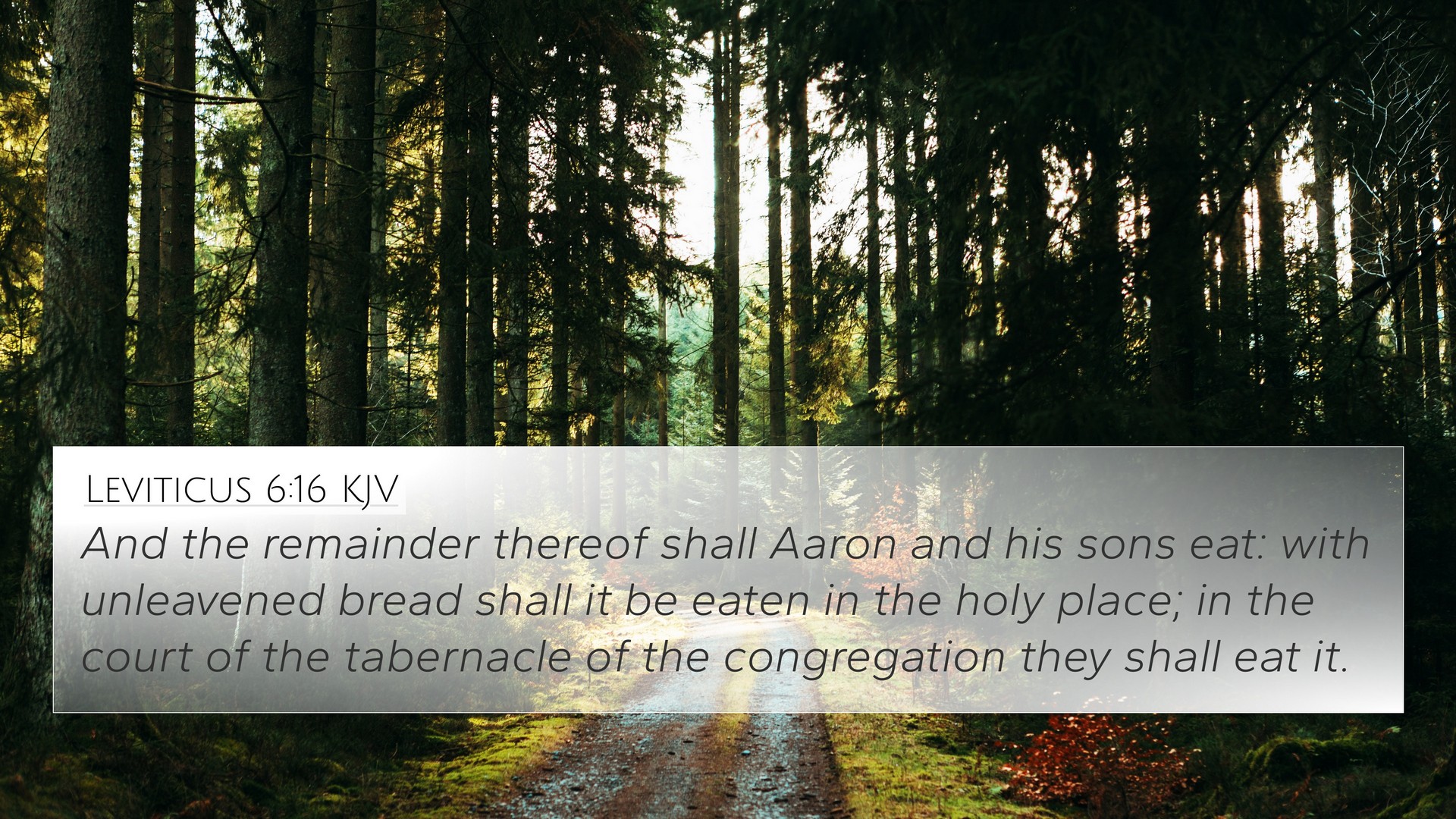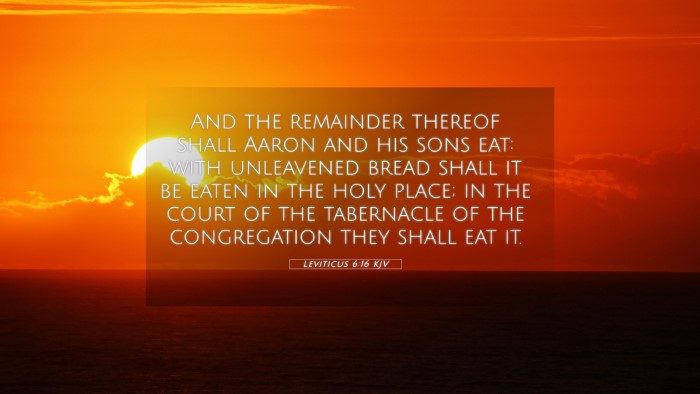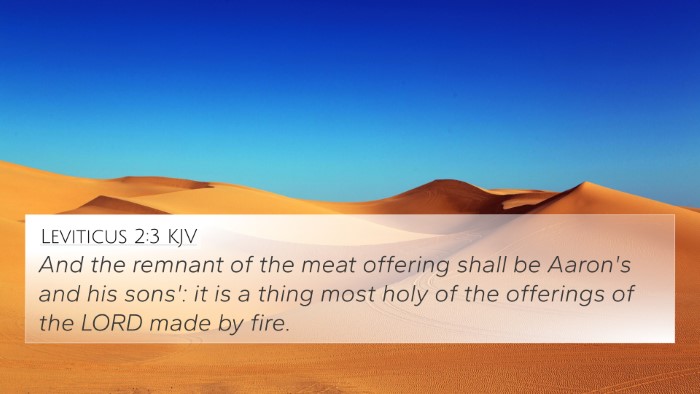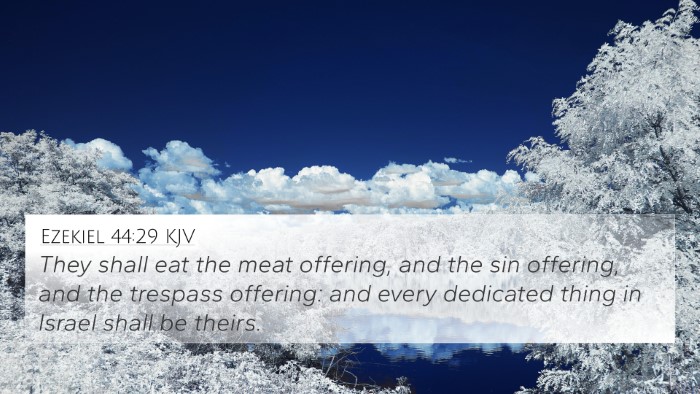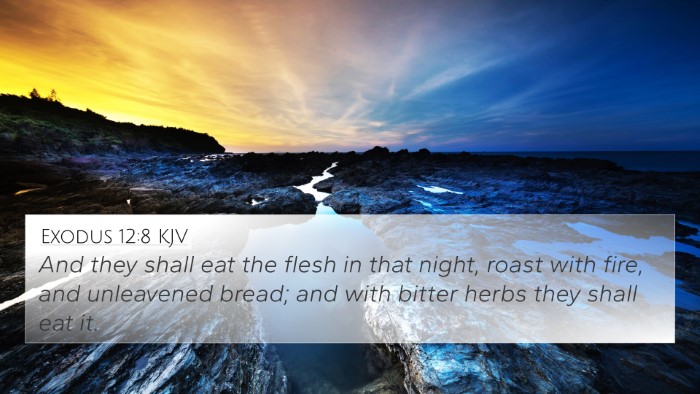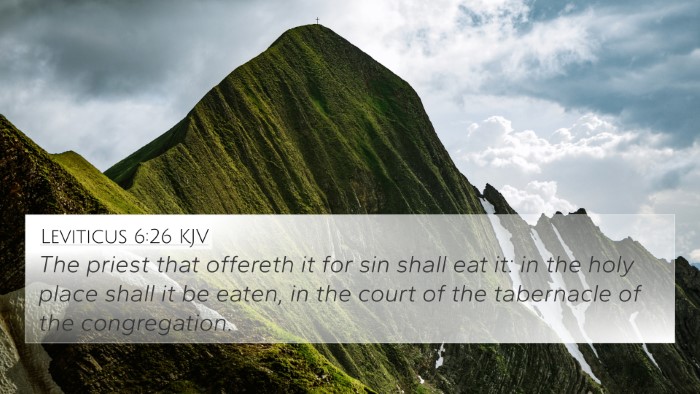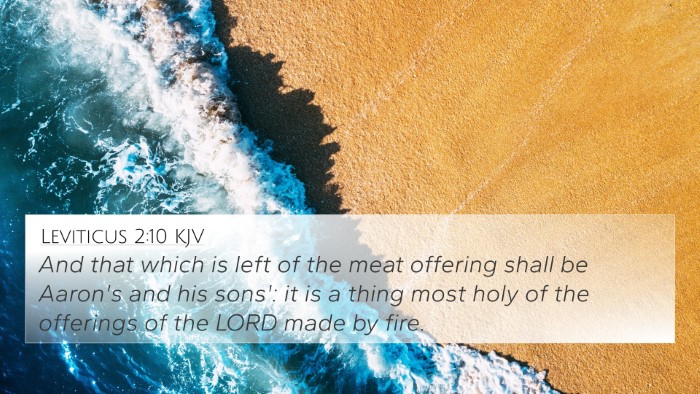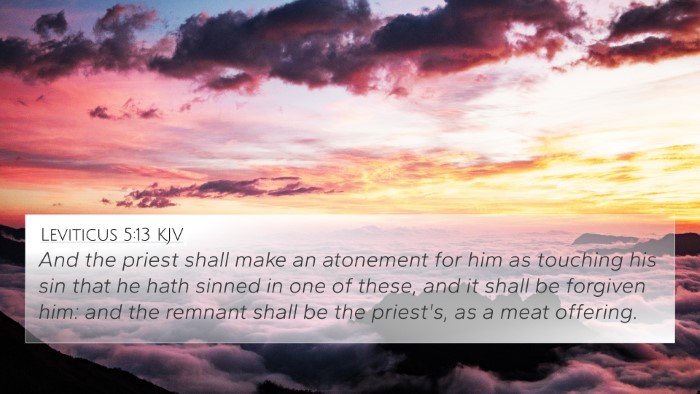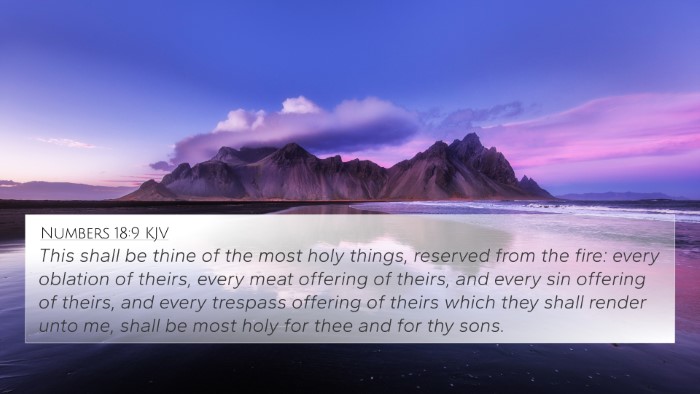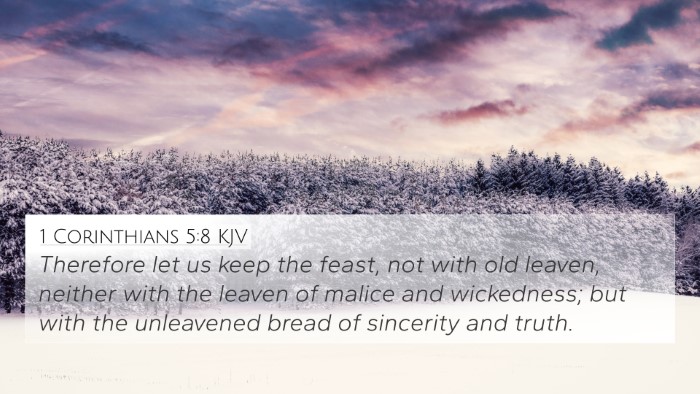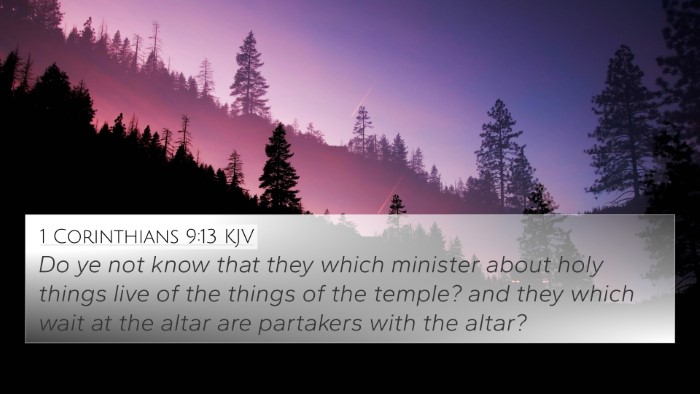Understanding Leviticus 6:16
Leviticus 6:16 states: “The remainder of the grain offering belongs to Aaron and his sons; it is a most holy part of the offerings made to the LORD by fire.” This verse emphasizes the sacredness of the grain offering and its allocation to the priests.
The significance of this passage can be drawn from several public domain commentaries which provide deep insights into the context and meaning. Here, we will combine insights from well-known commentators such as Matthew Henry, Albert Barnes, and Adam Clarke.
Significance of Grain Offerings
In the Levitical code, grain offerings play a pivotal role in expressing gratitude and devotion to God. They symbolize the worshiper's acknowledgment of God’s provision and are a means of sharing His blessings with the priesthood, who serve as mediators between God and the people. According to Matthew Henry, these offerings reflect the acknowledgment of God’s goodness, while Albert Barnes notes that they are both a means of worship and communal sharing.
The Role of Aaron and His Sons
The designation of the grain offering’s remainder to Aaron and his sons highlights their priestly role within the community. Adam Clarke elaborates on this point, indicating that the priests’ sustenance comes from these offerings, thus giving them a stake in the community's spiritual and material wellbeing. This system reinforces the idea of the priesthood being supported through the offerings of the people, creating a symbiotic relationship between worshippers and the priests.
Bible Verse Cross-References
- Exodus 29:28 - This verse indicates that the priests are to receive the breast and the right thigh from the offerings, further substantiating their share in the sacrificial system.
- Numbers 18:8 - Outlines the duties and privileges of the priests, reinforcing their role in handling holy offerings.
- Leviticus 2:10 - Talks about the portion of grain offerings reserved for the priests, echoing the themes discussed in Leviticus 6:16.
- Deuteronomy 18:1-2 - Establishes the inheritance of the priests and Levites, aligning with the provisions set in Leviticus.
- 1 Corinthians 9:13-14 - A New Testament reflection on the support of ministers, which draws a parallel to the Levite system.
- Hebrews 7:12-14 - Discusses the change in priesthood, comparing the Levitical priesthood with that of Jesus.
- Malachi 1:6 - Contains a stern reminder about the honor owed to God, directly addressing the responsibilities of priests in offering sacrifices.
Thematic Connections
Leviticus 6:16 not only emphasizes the importance of offerings but also enriches our understanding of the connections between various Bible verses. One can see the thematic parallels linking Old Testament practices with New Testament concepts of priesthood and sacrifice. The grain offerings remind worshippers that everything they possess comes from God and should be offered back to Him out of reverence.
Tools for Bible Cross-Referencing
For those seeking to delve deeper into cross-referencing Biblical texts, consider utilizing tools such as a Bible concordance or a Bible cross-reference guide. These resources can help uncover the connections between Bible verses and can be invaluable for personal Bible study.
Methods for Cross-Referencing
Engaging in a cross-reference Bible study allows for a comprehensive understanding of both historical context and theological implications across scripture. Identifying connections between the Old and New Testament can deepen one's understanding of Biblical themes and messages. Resources that offer comprehensive Bible cross-reference materials can enhance your study experience immensely.
Conclusion
In conclusion, Leviticus 6:16 serves as an essential reminder of the holiness of offerings, the role of the priesthood, and the worshippers’ duty towards God. The verse, when connected with its cross-references, opens up rich avenues for exploration in understanding the continuity and evolution of Biblical themes.
